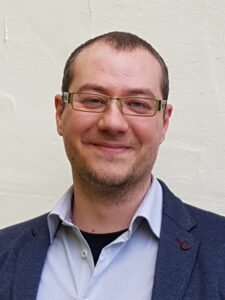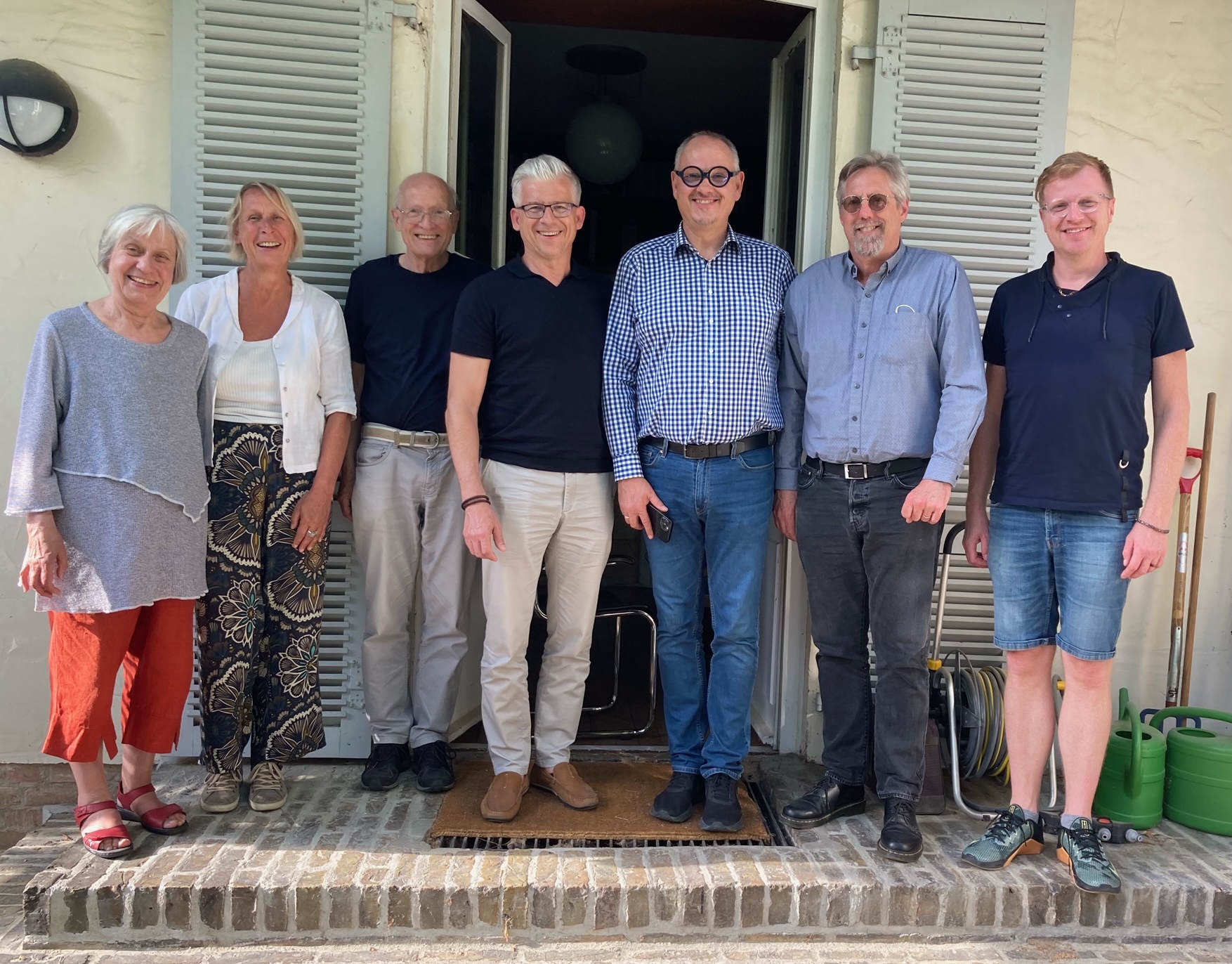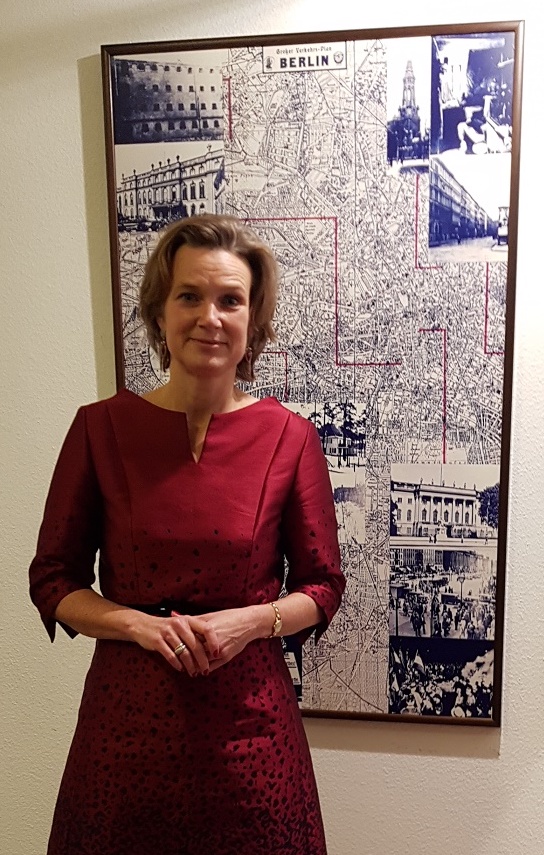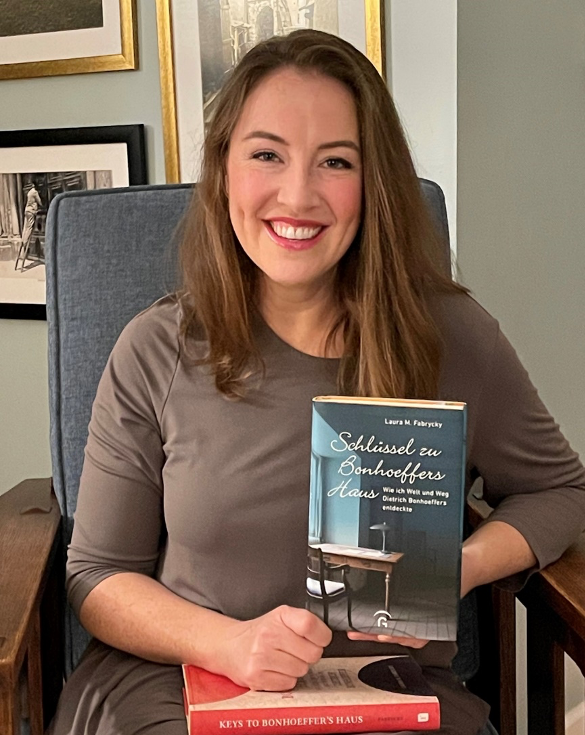Remembering birthdays is important, especially of people who mean a lot to us. But it seems to me that remembering the day of death is even more important, especially for people who lost their lives in the resistance. The birthday belongs to that one person, but the day of death connects them with all those who walked the difficult path with them. This is especially true for the memory of Dietrich Bonhoeffer and the others who were persecuted and murdered just before the end of tyranny.
In these days in which the war in Ukraine, with the suffering of the people in the country and in exile, and with the threat to other countries in Europe, occupies our thoughts, it can be helpful to remember the historical and political foundations of the European peace order, which is a thorn in Putin’s side. Among its roots are the designs of the ‚Kreisauers‘ and the ‚Freiburgers‘. They risked their lives in resistance to the National Socialist state of injustice and arbitrariness when they worked in the middle of the war (1942/43) on the goals of a peace order after the war. The guiding idea was to overcome the dangers of nationalism by distributing the threatening concentration of power in the nation state downwards and upwards: through an infranational structure of federalism with the principle of subsidiarity and a supranational structure of a sovereign European confederation of states. The decisive factor was the establishment of a lasting legal order after the tyrants had been disarmed. The rule of law, to be established against all nationalist opposition, was seen as the prerequisite and basis for the responsibility of the individual in the social, economic and political spheres. In the new society liberated from National Socialism, this included the rule of law to protect personal development and the establishment of democratic structures as the highest educational goals.
Dietrich Bonhoeffer also took part in the discussion about peace aims. For all those who were working conspiratorially towards this, the success of their plans depended on a clarification of the peace conditions of the Allies in the event of a possible overthrow in Germany. Dietrich Bonhoeffer was predestined to promote this clarification because of his ecumenical relations, especially with Bishop George Bell. In England, a discussion had developed in church-related circles about the ideas for a ’new Europe‘ after the war. In July 1941, William Paton, as spokesman for a discussion group with high-ranking church, social and political leaders, published in July 1941 a peace draft with the theme „The Church and the New Order“.[1]
Dietrich Bonhoeffer responded to secial points of this draft during his second trip to Switzerland (28 August – 26 September 1941) together with Willem A. Visser’t Hooft, the General Secretary of the World Council of Churches in Geneva, which was still in the process of being established. Eberhard Bethge describes this memorandum from Geneva as a „highly political book review“.[2] In the comments on Paton’s 4th chapter („The Ideal and the Next Steps“), Dietrich Bonhoeffer concretises the peace goals in his draft:
„What matters is whether a state order in Germany is realized that acknowledges its responsibility to the commands of God. That will become evident in the total removal of the Nazi system, including and especially the Gestapo; in the restoration of the sovereignty of equal rights for all; in a press that serves the truth; in the restoration of the freedom of the church to proclaim the word of God in command and gospel to all the world.“[3]
Bonhoeffer contradicts the „division of the whole of reality into sacred and profane“[4] and thus challenges the secular understanding of the world historically founded in the Enlightenment. The ‚Kreisauers‘ and the ‚Freiburgers‘ also formulate a reference to God in their ideas for a peace order. Bonhoeffer, however, explicitly seeks the basis of the legal order not in the ideal of the individual’s personal right or human rights, but in God’s command to protect the other, which is guaranteed in God’s Otherness (1st commandment) and in the divine monopoly on the use of force and can be experienced in Christ as the ‚Man for Others‘. „Whoever confesses the reality of Jesus Christ as the revelation of God, confesses in the same breath the reality of God and the reality of the world, for they find God and the world reconciled in Christ.“[5]
What does this Christian confession in interreligious dialogue mean today for the ideas of the rule of law in Europe in the face of religious-cultural plurality and diversity of life-stiles? On what normative foundation can the „common house of Europe“ exist in stormy times and also withstand the imperial warlike attacks of the „Russki Mir“[6] („Russian World“)? Certainly not only through the demonstration of military strength to the outside world, but fundamentally through the internal strengthening of civil, state and international law. In a legal and peaceful order that is committed to the commandment of love, the last will be first (Matthew 19:30). Its success is not based on the assertiveness of the interests of the strong, but on the social participation of the weak in society and in the international community of states. If the dignity of ‚the Other‘ is to be respected, protected and its violation through aggression, hatred, disregard and exclusion also sanctioned, openness, willingness to learn and readiness for dialogue is the path of empathy and solidarity with all those who are threatened by exclusion. The Christian commitment to the commandment of love becomes the preparation for God’s reality in the unreconciled world. Dietrich Bonhoeffer experienced the promise of this commandment of God, which demonstrates its reconciling power in Christ’s word and deed, in ecumenism, in the „universal Christian brotherhood that rises above all national hatreds“[7].
Gottfried Brezger, Rev. ret., Chairperson of the Board
Memorial and Place of Encounter Bonhoeffer-Haus, registered association, Berlin
„The Restoration of an authentic Worldly Order under God’s Command“- Peace goals for the time after the end of the Nazi state: Dietrich Bonhoeffer Works (DBWE). Volume 16. Conspiracy and Imprisonment: 1940-1945. Minneapolis 1996, 532.
[1] William Paton: The Church and the New Order, Gateshead on Tyne, July 1941.
[2] Eberhard Bethge: Dietrich Bonhoeffer. Theologe – Christ – Zeitgenosse. Eine Biographie. München 1970, 3. Auflage.
[3] Dietrich Bonhoeffer DBWE 16,532.
[4] Dietrich Bonhoeffer, Ethics, DBWE 6,57.
[5] Ibid. 62.
[6] Today, the formulation in Bonhoeffer’s draft of the response to Paton in anticipation of the German defeat and the Russian victory makes us take special notice: „It is not pan-Germanism, but rather pan-Slavism that is the coming danger“. The memorandum, written jointly with Visser’t Hooft, says: „Even though we may consider the British-Russian alliance a justifiable and unavoidable political decision, we must not minimise the danger which Russia represents for all what we hold dear.“ DBWE 16, 532f.,539.
[7] Dietrich Bonhoeffer’s last words, a message to Bishop George Bell, DBWE 16,469.
 Arno Helwig studied history at the University of Tübingen and at the Free University of Berlin. With a Master’s degree in Public History, he specialized in the field of history didactics and educational work in the culture of remembrance. After his time at the Memorial Museums Department of the Topography of Terror Foundation, the father of three is returning to church based remembrance work: he was already involved in the Martin-Niemoeller-House remembrance site in Berlin-Dahlem from 2017 to 2023.As director of the house, he was instrumental in rebuilding the site and consolidating an association structure. The project „From your point of view!“, which was launched under his leadership and is supported by the local association, was awarded the EKBO Inclusion Prize in 2024.
Arno Helwig studied history at the University of Tübingen and at the Free University of Berlin. With a Master’s degree in Public History, he specialized in the field of history didactics and educational work in the culture of remembrance. After his time at the Memorial Museums Department of the Topography of Terror Foundation, the father of three is returning to church based remembrance work: he was already involved in the Martin-Niemoeller-House remembrance site in Berlin-Dahlem from 2017 to 2023.As director of the house, he was instrumental in rebuilding the site and consolidating an association structure. The project „From your point of view!“, which was launched under his leadership and is supported by the local association, was awarded the EKBO Inclusion Prize in 2024.

